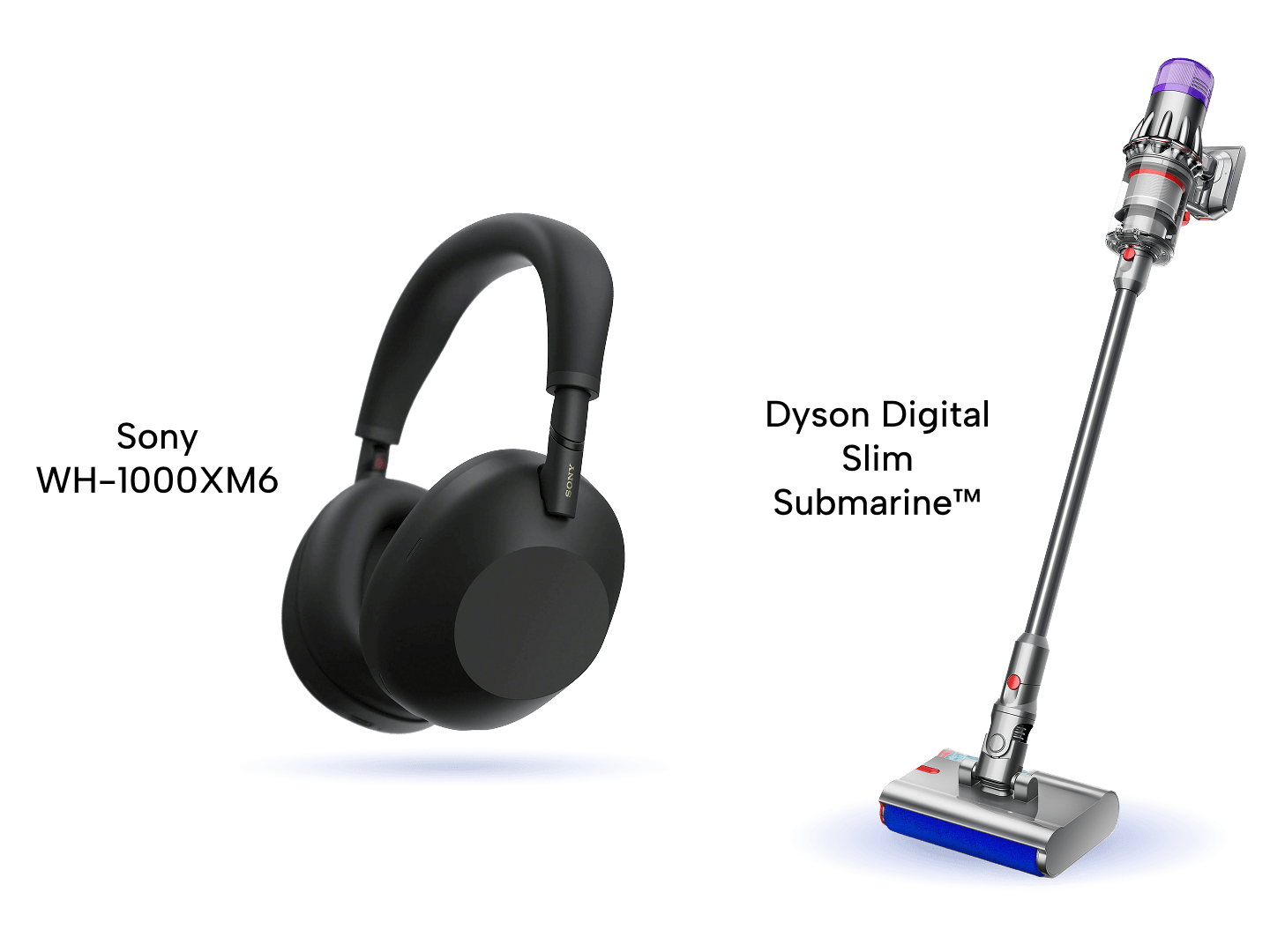Credit Score Range in Singapore: What is it and Why is it Important?
Updated: 11 Dec 2025
Ever wondered what that three-digit number attached to your financial history means? In Singapore, a credit score is a numerical representation of your creditworthiness.
While global credit agencies like Experian Credit Services and TransUnion play a big role internationally, the Credit Bureau Singapore (CBS) is the primary credit score provider here. Lenders use these scores to evaluate your ability to repay borrowed money, influencing your access to and the terms of financial products like credit cards, personal loans, and home loans in Singapore. That is why your credit score is important.
🧧 SingSaver CNY 2026 Flash Deal 🧧
Get an extra S$68 eCapitaVoucher on top of your reward! 🧧 For a limited time only, the first 8 eligible applicants at 2pm and 8pm daily will score this bonus when applying with Citi, HSBC or OCBC credit cards. Valid till 1 March 2026. T&Cs apply.
✨Get the Reward Upgrade You Deserve✨
Get your dream Apple, Dyson, Sony, or Nintendo gadgets when you apply for select Citi, HSBC, OCBC, or Standard Chartered credit cards via SingSaver and top up as low as S$60! Valid till 1 March 2026. T&Cs apply.
What are the CBS credit score categories?
In Singapore, your credit score provided by the CBS ranges from 1000 to 2000. What it does is it uses a probability of default concept, where a higher score indicates a lower likelihood of defaulting on payments.
A good credit score number would fall in the range of 1911 to 2000. It’s advisable to build a good credit score early as it can help with your future financial goals.

The scores are placed in categories based on risk grades.
-
High risk: 1000 to 1723
-
Medium risk: 1724 to 1910
-
Low risk: 1911 to 2000
A score within the low-risk range would be considered a good credit score.
Why do my credit scores differ across providers?
Varying calculation models
Not all lenders use the same credit scoring algorithm. While CBS provides the core credit score in Singapore (ranging from 1000 to 2000), banks may have their own internal risk scoring models that differ slightly.
These internal models might weigh certain behaviours, such as income stability, CPF contributions, or transaction history, even if they aren’t fully reflected in your official CBS score.
Varying credit report data
Not all financial institutions report to CBS with the same frequency. As such, a bank or lender might be using slightly outdated data, especially if you’ve recently made payments or opened a new line of credit.
Data discrepancies, like incorrect missed payment records or outdated loan balances, can also affect your score. This is why it's important to check your CBS report regularly for accuracy.
Why is your credit score range important?
Credit score ranges significantly impact approvals and terms for loans and credit cards. Your score affects your credit limits, the interest rates you're offered, and even your access to various financial products.
In Singapore, some employers in the financial sector may also review credit backgrounds (with your consent), which can influence employment outcomes.
Credit score ranges also play a role in credibility during joint applications, such as when applying for home loans with a spouse.
SingSaver x HSBC Advance Credit Card Exclusive Offer
Get a Dyson Airstrait™, 25,000 HeyMax Miles (worth S$600+), Apple Watch SE Gen 3 or S$400 Cash when you apply for an HSBC Advance Credit Card via SingSaver and fulfil promo requirements. You can also top up from just S$60 to upgrade to the latest Dyson, Sony or Apple products. Valid until 1 March 2026. T&Cs apply.
🧧 SingSaver CNY 2026 Flash Deal 🧧
Get an extra S$68 eCapitaVoucher on top of your reward! 🧧 For a limited time only, the first 8 eligible applicants at 2pm and 8pm daily will score this bonus when applying with Citi, HSBC or OCBC credit cards. Valid until 1 March 2026. T&Cs apply.
Factors affecting credit scores
Various components make up your credit score in Singapore. While the exact Credit Bureau Singapore (CBS) model is proprietary, it shares many characteristics with global credit scoring models.
Utilisation pattern
Your credit utilisation ratio refers to the amount of credit owed or used on your accounts. High credit utilisation can negatively impact your credit score. As a general rule of thumb, try to keep your credit card balances below 30% of your credit limits to demonstrate financial prudence.
Recent credit
Recent credit refers to newly booked credit facilities. Lenders may perceive an individual as over-extending themselves if they have too much recent credit within a short period. Apply for new credit in moderation.
Account delinquency data
Account delinquency refers to late payments. The presence of late payment data on your loan accounts will reduce your credit score, as it indicates a higher risk of default.
Credit account history
Consumers with an established length of credit history are likely to be deemed more favourable or reliable borrowers compared to those with limited or no credit history. Accounts with a history of prompt payments are more likely to have better credit ratings.
Available credit
Available credit refers to the number of accounts available (open or active) for credit. A higher amount of available credit can positively impact your score, indicating responsible credit management.
Enquiry activity
Enquiry activity refers to the number of new application enquiries found in your credit report. Each time a potential bank or financial institution pulls your credit report in response to a new loan application, an enquiry is placed on your file.
Increased loan application activities may indicate that the consumer's debt exposure is likely to increase, which may negatively affect your credit score.
Factors that will not influence your credit score
Here are some factors that don't play a role in influencing your credit score:
-
Self-enquiries: Checking your own credit report does not affect your score.
-
Income level: Your salary or income level isn't a factor in credit scoring.
-
Savings and investments: The amount of savings or investments you have isn't considered.
-
Debit card usage: How you use your debit card doesn't impact your credit score.
-
Personal profile data: Factors like marital status, race, religion, gender, nationality, employment status, and postal code are not used in credit score calculations.
>> Read more: Credit bureaus in Singapore and why they matter
SingSaver x DBS Live Fresh Card Exclusive Offer
Get S$175 eCapita vouchers, 12,000 MaxMiles by HeyMax (worth S$216), Apple AirPods 4, SAMSONITE STRAREN SPINNER 67/24, or a Xiaomi Truclean W20 Wet Dry Vacuum when you apply for a DBS Live Fresh Card via SingSaver and hit a min. spend of S$100 within 30 days of card approval. Or top up as low as S$250 to get the latest Dyson, Nintendo, or Sony products! Valid till 1 March 2026. T&Cs apply.
How to check and monitor credit
You can get a free credit score check by obtaining your free credit report from CBS upon your first credit application. Subsequent copies can be obtained via online purchase or in person. You'll need your NRIC and Singpass credentials to access the report.
Remember to monitor your credit report regularly so as to detect credit card fraud or errors that could negatively impact your score. Doing so constitutes a soft credit check, meaning it does not impact your score. Furthermore, with consistent checks, you can take steps to improve your credit card score.
>> Read more: 5 Things you should know about credit score


